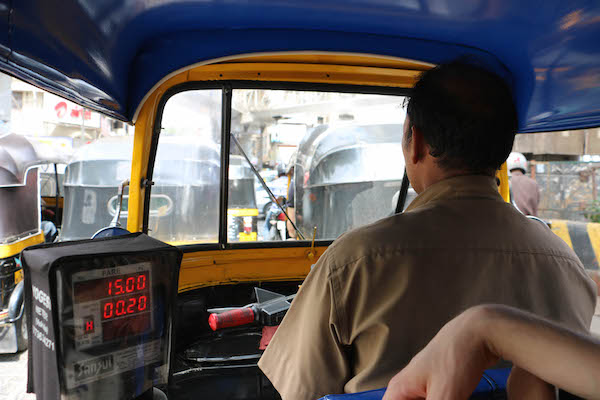When Jesus said go…
Two thousand years ago, a dozen or so men and women gathered on a hillside outside of the walls of ancient Jerusalem, waiting pensively under the bright sun. Assembled from a smattering of backgrounds, these were the most committed followers of Jesus of Nazareth, and they’d come to this lonely spot to hear him teach.
For several weeks they had witnessed a series of events unparalleled in human history. These were actions that would have been beyond belief if these disciples hadn’t experienced it themselves, as Jesus was dead on a cross only forty days before.
But since that time they saw him alive and spoke to him and touched him. One even stuck his hand into the wound on Jesus’s side. Jesus ate with them and reassured them. It had been a joyous, miraculous celebration of Jesus. However, he stressed that he wouldn’t stay with them forever and as it turned out, this was the last time that he spent with his most faithful disciples.
So, before he left for good, what did Jesus tell these devoted followers? What instructions did he place before them?
Jesus gives them an audacious goal, a great commission that will consume their lives. Jesus tells them to go and make disciples of all the nations.
Dave Dishman
How did he encourage them to carry on? His directions were quite simple, really. But like all that Jesus taught, in his simplicity lies a depth of profound meaning.
Jesus told his disciples to GO. He told them to make more disciples, disciples from all nations (Matthew 28). He let them know that his vision is not just local, but it encompasses Jerusalem, Judea, Samaria and the ends of the earth.
Picture it.
A handful of his followers, mostly uneducated, certainly not powerful or wealthy or well connected, sitting on a hill in a subjugated country at the edge of the Roman Empire. Jesus gives them an audacious goal, a great commission that will consume their lives. Jesus tells them to go and make disciples of all the nations.
So what do they do? They go…

Going is a serious call, but is it for me?
When Jesus told his disciples to go, they took him seriously. They went. They left their homes and communities and took the message out. They left to make disciples of all nations.
Those of us who follow Jesus today are beneficiaries of these first disciples. We owe them a debt. They set the tone for Jesus’s disciples over the centuries.
To follow Jesus involves going. It involves helping others become his disciples. Christianity is, at its core, a missionary religion. It’s spread by the followers of Jesus going either next door or to the next continent to make disciples.
Followers of Jesus have embraced this teaching over the centuries.

To follow Jesus involves going. It involves helping others become his disciples. Christianity is, at its core, a missionary religion. It’s spread by the followers of Jesus going either next door or to the next continent to make disciples.
Dave Dishman
How the gospel got going; Roman travel buffs
Paul, the first century apostle, was one of the greatest to go. He traveled all over the Roman Empire spreading the news about Jesus. In fact, open up almost any Bible (an archaic, printed Bible, not an app) and in the back you’ll find a section of maps. One of those maps will be labeled something like, “the missionary journeys of Paul.” He was a big deal.
About 400 years later, on an island far to the north, Irish raiders kidnapped a young English boy named Patricius and held him as a slave for several years.
While he eventually made his escape and returned to England, something began to shift in his heart. The Lord, through visions, began to pull him once again to Ireland, this time to return as a missionary to his former captors. He sailed back to preach the gospel to the pagan Irish and eventually became Saint Patrick of Ireland, the first documented missionary outside the bounds of the Roman Empire.
Patrick preached the gospel as far as he could go, “to the point beyond which there is no one,” to the western edge of Ireland. Only the sea remained. He was highly determined. If Patrick had known of the Americas, I’m guessing he’d have built a boat to get there.
When Jesus told his disciples to go, they took him seriously. They went. They left their homes and communities and took the message out. They left to make disciples of all nations.
Dave Dishman
Passing the baton: From Britain to Africa
In the 1800’s, a young missionary named David Livingstone left his home in Scotland to take the gospel to Africa, a land where he witnessed “the smoke of a thousand villages, where no missionary had ever been.” Soon after arriving, he was mauled by a lion, but lived to press on to share the gospel.
Thanks to his pioneering work and the efforts of many others, millions of Africans are now disciples of Jesus. Their influence is broad.
Some of these followers of Jesus answered the call to make disciples of all nations by going to the Xhosa tribe of South Africa.
Meanwhile, in South Africa…
There, a young Nelson Mandela was formed in his faith and in his ability to forgive during his years attending a Methodist grammar school.
Mandela went on to become the first black President of South Africa where he stressed forgiveness and unity despite spending twenty-eight years in a prison for his political beliefs. He led South Africa through a perilous journey from apartheid towards freedom, staving off what many felt would be a time of mass bloodshed and loss of life.
Why? Because he applied the teachings of Jesus that had infiltrated his young life to the political situation in South Africa. He heard those teachings because someone took seriously Jesus’ word to go.
How about you? Do you take those words seriously? Where should you go?
You never know, perhaps there is a young Mandela in your path, just down the road, ready for the words of Jesus.

One of the glories of going in this way is that Jesus does not spell out the details. He gives quite a range of available options (all the world). He gives some direction on what you should do as you go, which is to be his witness and make disciples and love God and love others. But he leaves the place up to you.
Dave Dishman
Are you ready to get moving? Go means don’t stay
If you look up the word go in the dictionary, you’ll find a variety of definitions along the same theme. My Webster’s dictionary, which I received as a high school graduation gift many, many years ago (when English was still fairly new) defines the word like this:
1) to move on a course; proceed
2) to move out or away from a place.
As you can see, these definitions involve movement of some kind. When Jesus tells his disciples to go, he means for them to get up and move, to proceed to the task of making disciples. It is time to leave the hillside and head to a new place, to get into motion.
But one thing is clear. You have to move to get there. You have to get off your backside and go.
Dave Dishman
Like a lot of the things that Jesus encourages us to do, such as “love your neighbour as yourself,” the actual teaching is fairly easy to understand.
Unfortunately, putting the teaching into practice is much more difficult.
Loving your loud, annoying neighbour is more work than Jesus lets on. In the case of go, for instance, you might ask, “where?” Jesus aims us at all the nations, but where to start first? With whom? What time? What comes first? Second?
In the case of go, for instance, you might ask, “where?” Jesus aims us at all the nations, but where to start first? With whom? What time? What comes first? Second?
Dave Dishman
One of the glories of going in this way is that Jesus does not spell out the details. He gives quite a range of available options (all the world). He gives some direction on what you should do as you go, which is to be his witness and make disciples and love God and love others. But he leaves the place up to you.
It may be far, like the outermost part of the earth (wherever that is from you) or it may be near, like across the street. But one thing is clear. You have to move to get there. You have to get off your backside and go.
Images:
- “Map Search” by Steph B
"*" indicates required fields
Share this!
About the Author




